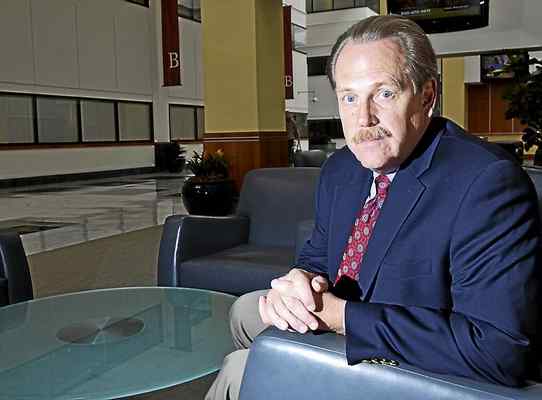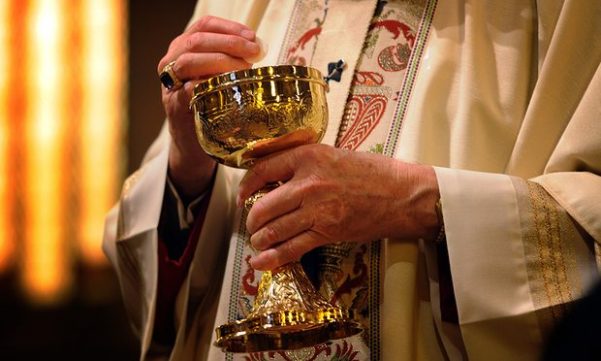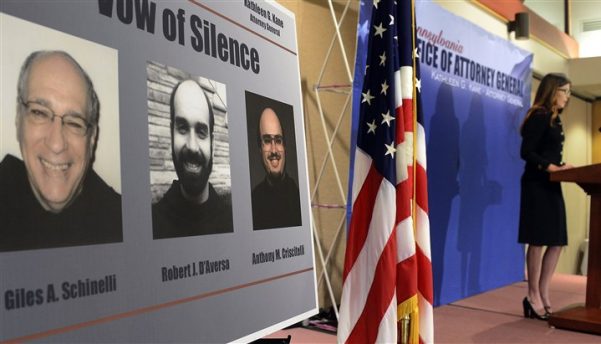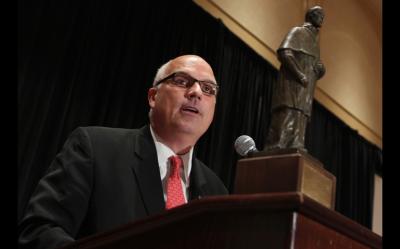By Patti Mengers

Nearly eight years after John Salveson stood in the state Capitol Rotunda in Harrisburg and entreated Pennsylvania legislators to hold public hearings on House Bill 1137 ‒ the Child Victim’s Act of Pennsylvania, a similar bill passed the House of Representatives on Tuesday.
The 60-year-old Radnor resident, who is president of the Foundation to Abolish Child Sex Abuse, called the passage of House Bill 1947 “a major step forward in our battle to find justice for the victims of child sex abuse in Pennsylvania.”
“House Bill 1947 is not perfect – but it provides an opportunity for justice for child sex abuse victims, who would have the ability, under the law, to bring civil suits against the people who abused them and the institutions which sheltered those abusers,” said Salveson.
The bill, that was approved 180-15 in the House and is now being considered by the state Senate Judiciary Committee, expands the age limit from 30 to 50 for individuals who were abused as children to bring civil lawsuits against their abusers and organizations entrusted with their protection, and would prevent organizations that have acted with gross negligence from claiming immunity. It would be retroactive, allowing past abuse victims to sue.
House Bill 1947 was proposed by state Rep. Ron Marsico,R-105, of Dauphin County but was amended to include past victims by state Rep. Mark Rozzi of Berks County, D-126, who has identified himself as a survivor of Catholic clergy abuse and has been promoting such legislation since he was elected in 2012.
In 2014 Rozzi proposed House Bill 2067 that would have permanently removed the civil and criminal statutes of limitations involving child sexual abuse but it stalled as have similar bills proposed by at least six other Democratic and Republican legislators.
In March state Attorney General Kathleen Kane released a 147-page grand jury report that concluded that hundreds of children were sexually abused over at least four decades by at least 50 priests or religious leaders in the Roman Catholic Diocese of Altoona-Johnstown and that diocesan superiors concealed the abuse.
Salveson feels that grand jury report contributed to the newfound receptivity of House members to the child abuse lawsuit bill along with Rozzi’s “tireless work” and the popularity of “Spotlight,” the Academy Award-winning film about Boston Globe reporters who, in 2002, wrote a series about child sex abuse by nearly 90 priests concealed by the Archdiocese of Boston, that broke open the scandal in Roman Catholic dioceses nationwide.
Of the 11 Delaware County state representatives, only Greg Vitali, D-166, of Haverford opposed House Bill 1947 on Tuesday.
“Current law allows a victim who was assaulted as a child to come forward until he reaches the age of 50 to report the crime. I don’t think this needs to be changed. The proposed legislation would expose the public schools and thus taxpayers to civil judgments against them. Given the problem we are having funding education, this concerns me,” said Vitali.
State Rep. Leanne Krueger-Braneky, D-161, of Swarthmore, voted to add Rozzi’s amendment to House Bill 1947 last Monday, but was on leave Tuesday when the vote on the bill was taken.
“I wholeheartedly support the bill because it is important to get justice. It can take years for victims to work through the trauma and come forward,” said Krueger-Braneky.
Salveson can identify with the suffering of individuals who were sexually abused as children.
In 1989, he distributed letters on the steps of a church where a Long Island, New York, priest who Salveson said abused him for seven years when he was an adolescent, was serving. Salveson had reported the alleged abuser to his bishop in the Diocese of Rockville Centre in 1980, to no avail.
After Salveson distributed the letters recounting his abuse, the priest, who is now deceased, was finally removed from parish work. The alleged abuser then started a counseling practice. A 2003 Suffolk County grand jury report maintained that the diocese failed in its duty to protect children.
According to two Philadelphia grand jury reports issued in 2005 and 2011, there have been dozens of victims of more than 60 priests since the 1940s in the five-county area constituting the Archdiocese of Philadelphia. More than 40 of the suspected pedophiles had connections to Delaware County. Three priests and a male lay teacher named in the second grand jury investigation were able to be prosecuted because of the state criminal statute of limitations being expanded to age 50 in 2006.
“Ninety percent of people who abuse kids never end up in the courtroom because of the statute of limitations,” noted Salveson in 2008.
Civil lawsuits would expose alleged abusers who were unable to be prosecuted.
Salveson is confident that state Sen. Stewart Greenleaf, R-12, of Montgomery County, chairman of the Senate Judiciary Committee, will help quickly move the bill to the Senate floor for a vote because “he was among the first in the Commonwealth to advocate for progressive laws related to child sex abuse.”
State Sen. Daylin Leach, D-17, of Upper Merion, who represents Haverford and Radnor townships as well as parts of Montgomery County, is minority chair of the judiciary committee. Zach Hoover, Leach’s chief of staff and minority counsel for the judiciary committee, said, broadly speaking, Leach supports House Bill 1947.
“From a policy standpoint, there’s nothing he thinks should be amended, but we are looking into the constitutionality of the portion of the bill that makes the policy retroactive,” said Hoover on Friday.
Salveson, who was formerly president of the Philadelphia chapter of the Survivors Network of Those Abused by Priests or SNAP, founded the Foundation to Abolish Child Sex Abuse, an organization to advocate for reform of Pennsylvania legislation affecting sexually abused children, in 2006.
“FACSA will continue to press for the passage of this and other laws to protect children,” said Salveson. “The time is long overdue for Pennsylvania to support those who have been abused, rather than their abusers.”
Complete Article HERE!



